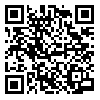Mon, Feb 2, 2026
[Archive]
Volume 18, Issue 2 (2025)
J Med Edu Dev 2025, 18(2): 153-155 |
Back to browse issues page
Download citation:
BibTeX | RIS | EndNote | Medlars | ProCite | Reference Manager | RefWorks
Send citation to:



BibTeX | RIS | EndNote | Medlars | ProCite | Reference Manager | RefWorks
Send citation to:
Saed O. Navigating digital distractions: Addressing academic procrastination in medical students amidst social media and smartphone use. J Med Edu Dev 2025; 18 (2) :153-155
URL: http://edujournal.zums.ac.ir/article-1-2456-en.html
URL: http://edujournal.zums.ac.ir/article-1-2456-en.html
Department of Clinical Psychology, School of Medicine, Zanjan University of Medical Sciences, Zanjan, Iran. Email: o.saed@zums.ac.ir , o.saed@zums.ac.ir
Abstract: (1572 Views)
Abstract
Recent estimates indicate that medical students check their smartphones over 100 times daily, frequently during academic activities, lectures, and study sessions. This pervasive digital engagement may seem innocuous, but growing evidence highlights a darker side: a strong association between excessive smartphone/social media use and academic procrastination. Over 60% of medical students report experiencing moderate to high levels of academic procrastination, with smartphone and social media use identified as major contributing factors. Integrating smartphones and social media into everyday life has significantly enhanced connectivity and information access. However, among medical students, excessive digital engagement has been associated with academic procrastination, negatively impacting academic performance. Recent studies underscore the urgency of addressing this issue through evidence-based interventions.
Recent estimates indicate that medical students check their smartphones over 100 times daily, frequently during academic activities, lectures, and study sessions. This pervasive digital engagement may seem innocuous, but growing evidence highlights a darker side: a strong association between excessive smartphone/social media use and academic procrastination. Over 60% of medical students report experiencing moderate to high levels of academic procrastination, with smartphone and social media use identified as major contributing factors. Integrating smartphones and social media into everyday life has significantly enhanced connectivity and information access. However, among medical students, excessive digital engagement has been associated with academic procrastination, negatively impacting academic performance. Recent studies underscore the urgency of addressing this issue through evidence-based interventions.
Keywords: Academic procrastination, smartphone addiction, social media use, medical students, self-regulation, digital literacy, cognitive-behavioral therapy.
Article Type : Editorial |
Subject:
Medical Education
Received: 2025/04/5 | Accepted: 2025/04/20 | Published: 2025/07/13
Received: 2025/04/5 | Accepted: 2025/04/20 | Published: 2025/07/13
References
1. Tian J, Zhao JY, Xu JM, et al. Mobile phone addiction and academic procrastination negatively impact academic achievement among Chinese medical students. Frontiers in Psychology. 2021;12:758303. [DOI]
2. Naushad K, Jamil B, Khan NA, Jadoon M. Correlation between social media addiction and academic procrastination in medical students at public and private medical colleges at Peshawar. Pakistan Journal of Medical Sciences. 2025;41(3):837. [DOI]
3. Mesbah Moghaddam F, Abdi Zarrin S. Prediction of internet addiction based on academic procrastination, loneliness, and time management of students at Qom university. Sciences and Techniques of Information Management. 2022;8(4):409-40 [DOI]
4. Rasouli A, Nejad-Ebrahim Soumee Z, Tirgari Seraji H, Ramzi F, Saed O. The self-control bridge: connecting social media use to academic procrastination. Psychological Reports. 2025:00332941251330538. [DOI]
5. Wehrwein EA, Lujan HL, DiCarlo SE. Gender differences in learning style preferences among undergraduate physiology students. Advances in Physiology Education. 2007;31(2):153-7. [DOI]
Send email to the article author
| Rights and permissions | |
 |
This work is licensed under a Creative Commons Attribution-NonCommercial 4.0 International License. |




